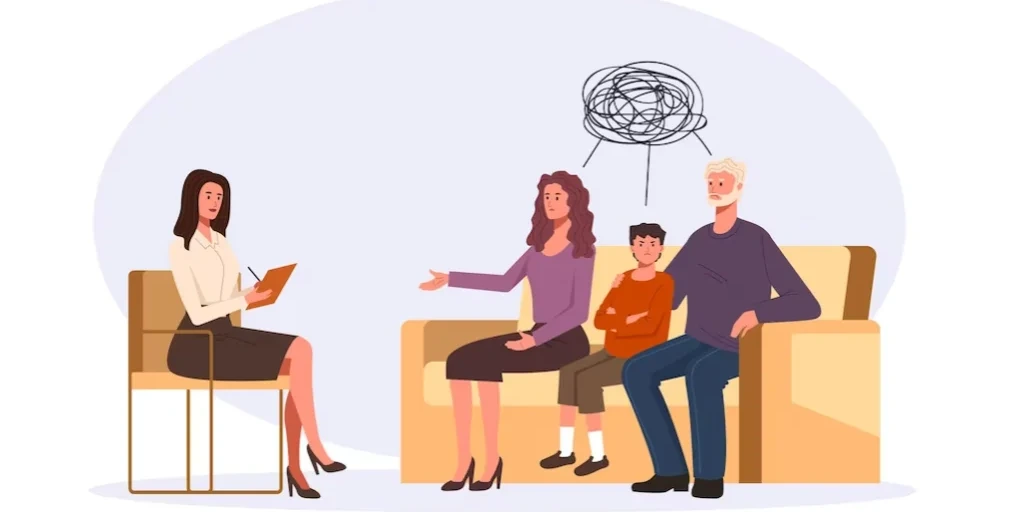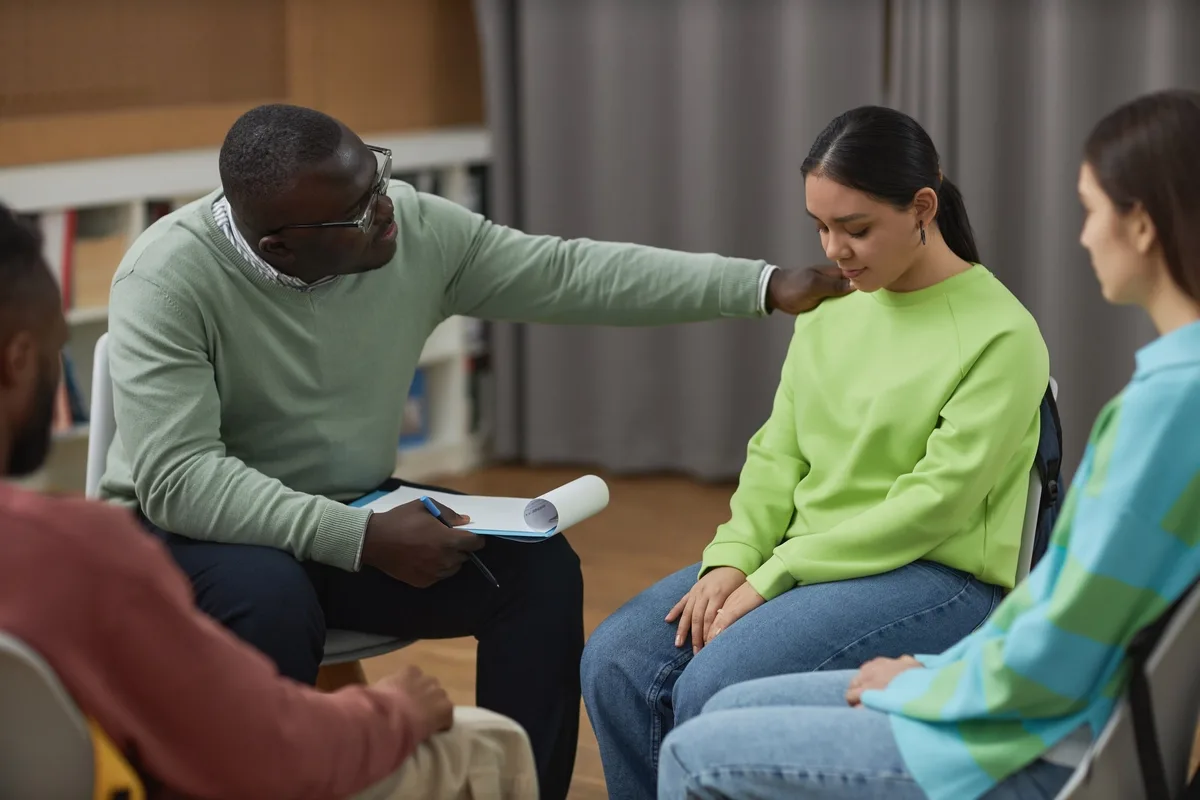24/7 Helpline:
(866) 899-221924/7 Helpline:
(866) 899-2219
Learn more about Group Therapy centers in Anaheim
Group Therapy in Other Cities

Other Insurance Options

American Behavioral

Regence

Highmark

Coventry Health Care

Carleon

United Health Care

Cigna

Ambetter

MHNNet Behavioral Health

Access to Recovery (ATR) Voucher

Oxford

Covered California

ComPsych

Sliding scale payment assistance

CareFirst

EmblemHealth

GEHA

AllWell

Magellan

Amerigroup

Lighthouse Treatment Center
Lighthouse Treatment Center is a drug and alcohol rehab that supports adults struggling with addicti...

Hope House
Hope House provides comprehensive addiction treatment in a supportive environment for adults in Anah...

Anaheim Lighthouse
Anaheim Lighthouse is a CARF accredited detox and substance abuse treatment center in Anaheim, CA. O...

California Hispanic Commission – Casa Elena
California Hispanic Commission - Casa Elena offers inpatient treatment for individuals with alcohol ...

Center for Adolescent Addiction Recovery – The CAAR
Center for Adolescent Addiction Recovery – The CAAR is a non-profit rehab located in Anaheim, Califo...

Ther Residential Center
Ther Residential Center is a private rehab located in Anaheim, California. Ther Residential Center s...

Canyon View Treatment Centers
Canyon View Treatment Centers, part of Aspire Health Network, offers inpatient and outpatient servic...

Revision Counseling
Revision Counseling is a private rehab located in Anaheim, California. Revision Counseling specializ...

Star Recovery Centers
Star Recovery Center is a gender-specific detox & residential inpatient program in Santa Ana, Califo...

Domus Retreat
Domus Retreat is a private alcohol and opioid treatment program facility located in Anaheim Hills, C...

ITTR Detox
ITTR Detox is a private rehab located in Anaheim, California. ITTR Detox specializes in the treatmen...

















Anaheim Alana Club
Anaheim Alana Club is a non-profit rehab located in Anaheim, California. Anaheim Alana Club speciali...

Southern California Alcohol
Southern California Alcohol is a private rehab located in Anaheim, California. Southern California A...

California Council on Problem Gambling and Addiction
California Council on Problem Gambling and Addiction is a private rehab located in Anaheim, Californ...

Comeback Treatment Centers
Comeback Treatment Centers is a private rehab located in Anaheim, California. Comeback Treatment Cen...

Anamika Inpatient Alcohol Treatment Center
Anamika Inpatient Alcohol Treatment Center offers inpatient and outpatient treatment for individuals...

Comeback Sober Living
Comeback Sober Living is a private rehab located in Anaheim, California. Comeback Sober Living speci...

Grupo Esperanza de Vivir – AA – Alcoholicos Anonimos
Grupo Esperanza de Vivir – AA – Alcoholicos Anonimos is a non-profit rehab located in Anaheim, Calif...

AA – Alcoholics Anonymous
AA – Alcoholics Anonymous is a non-profit rehab located in Anaheim, California. AA – Alcoholics Anon...

Sentencing Concepts Counseling Concepts
Sentencing Concepts Counseling Concepts is a private rehab located in Anaheim, California. Sentencin...

Wel Mor Psychology Group
Wel-Mor Psychology Group provides outpatient and intensive outpatient services to help individuals t...

Southern CA Alcohol and Drug Program
Southern CA Alcohol and Drug Program is a private rehab located in Anaheim, California. Southern CA ...

Heritage House North
Heritage House North offers inpatient treatment for women and children with alcohol and/or substance...

Costal Addiction Center
Costal Addiction Center is a private rehab located in Anaheim, California. Costal Addiction Center s...

Our House Sober Living
Our House Sober Living is a private rehab located in Anaheim, California. Our House Sober Living spe...

Americana Management Recovery Home
Americana Management Recovery Home is a private rehab located in Anaheim, California. Americana Mana...






